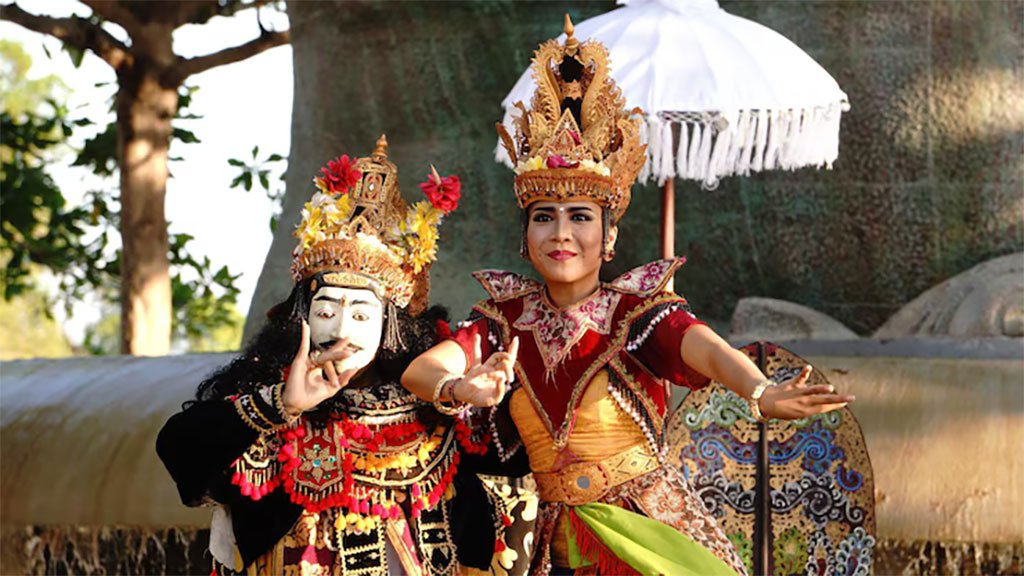The Balinese Way: Understanding Social Etiquette and Respect
When you think of Bali, you might picture stunning beaches, vibrant temples, and lush landscapes. But beneath the island’s breathtaking beauty lies... Read More

Bali is a vibrant tapestry woven from centuries-old traditions, lush landscapes, and warm-hearted people. At the heart of Bali’s unique allure lies its rich cultural heritage, most vividly expressed through its festivals. These celebrations are not only religious rituals but also colorful spectacles brimming with art, dance, music, and community spirit. If you are planning a trip to Bali or just want to immerse yourself in its fascinating culture, attending one of its many festivals is an unforgettable experience.
In this article, we explore the top 5 Balinese festivals you simply cannot miss, detailing their origins, rituals, highlights, and what makes each one special. Prepare yourself for a journey through Bali’s soul, where spirituality and festivity blend seamlessly.
Nyepi, known as the Balinese New Year, is a day unlike any other in the world. Celebrated according to the Balinese Saka calendar, it usually falls in March. The festival marks the start of the new year with a day dedicated entirely to silence, fasting, and self-reflection. Unlike typical New Year’s celebrations filled with noise and fireworks, Nyepi is a complete shutdown of the island.
Rooted deeply in Balinese Hinduism, Nyepi symbolizes cleansing and renewal. It is believed to purify the island by driving away evil spirits through silence and inactivity. The day reflects the Balinese principle of Tri Hita Karana, a philosophy focused on harmony among humans, nature, and the spiritual realm.
Nyepi Day is observed by refraining from all activities: no work, no travel, no entertainment, no fires, and even no talking. Airports close, streets empty, and the island goes into a hush. The day before Nyepi, the Melasti ritual involves purifying sacred objects by taking them to the sea, and the evening features Ogoh-Ogoh parades, where giant demon-like statues are paraded and then burned to ward off evil spirits.
Witnessing the eerie silence and participating in this spiritual day offers a rare chance to disconnect from the chaos of daily life and experience a profound form of introspection.
Galungan is one of Bali’s most important festivals, celebrated every 210 days according to the Balinese calendar. It commemorates the victory of dharma (good) over adharma (evil) and the return of ancestral spirits to earth. The festival lasts for ten days and culminates with Kuningan.
Homes and temples are adorned with penjor — tall, curved bamboo poles decorated with coconut leaves, fruits, and flowers symbolizing prosperity. Families prepare elaborate offerings, and temples host ceremonies to welcome and honor the ancestors.
On Kuningan, the closing day, special yellow rice dishes and offerings are made, and people pray for blessings and protection.
Galungan is a feast for the senses and a perfect time to witness authentic Balinese spirituality and hospitality at its peak.
Held annually in June and July, the Bali Arts Festival is the island’s largest cultural event, celebrating Balinese art, music, dance, and crafts. It provides an incredible platform for local artists to showcase their talents and for visitors to immerse themselves in Bali’s creative spirit.
The festival spans over a month, featuring daily performances, exhibitions, workshops, and competitions. From traditional dances like Legong and Barong to contemporary art displays, the event attracts artists and tourists from around the globe.
It’s a vibrant celebration of Bali’s creative soul and an opportunity to learn about its diverse artistic heritage firsthand.
Saraswati Day is a religious celebration dedicated to Saraswati, the Hindu goddess of wisdom, knowledge, and the arts. It usually takes place once every 210 days and is a special day for students, artists, and scholars across Bali.
On this day, books, musical instruments, and art supplies are cleaned and blessed in temples and homes to honor the goddess. Schools and educational institutions often hold ceremonies and performances to mark the occasion.
Saraswati Day highlights the importance of education and creativity in Balinese culture, reinforcing respect for learning as a sacred duty.
Whether you’re a student or a traveler eager to understand Balinese values, participating in Saraswati ceremonies provides insight into the island’s deep respect for knowledge and art.
Tumpek Landep is a unique Balinese festival dedicated to honoring metal objects, especially weapons, tools, and vehicles. It occurs every 210 days and focuses on the belief that metal items have spiritual power and should be treated with respect.
On this day, blacksmiths and craftsmen bring their tools and products to temples for blessing ceremonies. Vehicles, from motorbikes to cars, are cleaned and decorated, and offerings are made to ensure safety and good fortune.
Tumpek Landep reflects the harmony between spiritual belief and daily life. The festival underscores the Balinese idea that even the most mundane objects possess a divine essence.
It’s a fascinating glimpse into Balinese craftsmanship and spiritual life, revealing a culture where spirituality permeates every aspect of existence.
Balinese festivals are much more than celebrations—they are living expressions of an ancient philosophy, a vibrant art form, and a communal heartbeat that keeps the island’s spirit alive. Whether you witness the profound silence of Nyepi, the dazzling colors of Galungan, or the artistic splendor of the Bali Arts Festival, these cultural events promise unforgettable memories and a deeper understanding of Bali’s unique heritage.
So, pack your bags, open your heart, and prepare to dive into the magical world of Balinese festivals. Your journey through the Island of the Gods awaits!
Join The Discussion